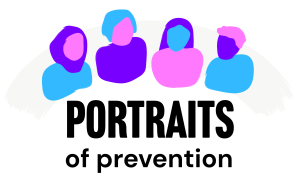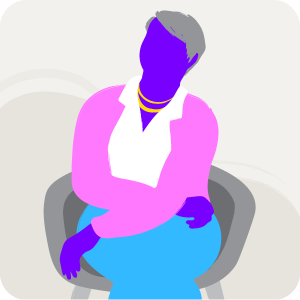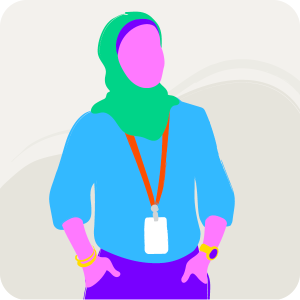
Shweta
Early intervention
Shweta is a program manager leading a gendered violence prevention and early intervention program at a Women’s Health organisation, which is part of Victoria’s Women’s Health Services Network.
Before working in primary prevention, Shweta had a successful career in communications in the corporate sector, specialising in the arts including film and television. She also worked as a volunteer board member at a refugee-led organisation in Southeast Asia, providing education and health promotion programs to displaced people from diverse backgrounds. These experiences equipped her with valuable skills in leadership, budget management, strategy and audience engagement, alongside community engagement and cross-cultural competency.
She later moved into community work, taking on a role as a Team Leader at a women’s health organisation. This position involved engaging with diverse communities to promote vaccination using culturally tailored communication and health promotion strategies. Shweta’s lived experience as a migrant and connection to community helps her in integrating conversations about violence prevention alongside broader conversations about health and wellbeing.
Initially, Shweta entered the field with limited direct knowledge of family and gender-based violence prevention. She undertook the Fast Track program at Safe and Equal, which she credits as transformative for providing industry-specific language and foundational knowledge. She supplemented this learning with organisational training, covering topics like feminist frameworks, intersectionality and responding to disclosures and honed her practice through day-to-day work and structured reflection within her team.
Shweta emphasises the value of community connections and cultural safety in both community engagement and workforce development. These skills are usually strongest amongst individuals who have been leaders or advocates within their community and are often not valued enough. For her, the ability to build trust and engage authentically with communities is essential. A key challenge for Shweta is the lack of representation of women of colour in leadership spaces she has access to, and for her it highlights the importance of more pathways for women including recognition of capabilities and embedding cultural safety to support full participation.
Shweta views intersectionality as a necessary lens for practitioners to ensure they consider diverse lived realities in their work, particularly those who do not directly experience complex marginalisation. She advocates for simple, clear language to explain intersectionality and a focus on practical examples to support understanding. Cultural safety is a cornerstone of her practice here as well. This ensures services and referrals are both relevant and respectful to the cultural contexts of those seeking help and helps provide a safe space for practitioners to unpack their own cultural understanding of violence as part of ongoing reflective practice.
Shweta advocates for structured training for responding to disclosures of violence, which must be supported by clear service pathways and organisational support for practitioners.
She highlights the unseen work many women do in their communities, advocating for culturally appropriate community capacity building programs that acknowledge and support these efforts. Such programs, she argues, can bridge prevention and response, equipping community members with the skills and resources to support their peers to access services when needed. These programs need to respect culture and support women as both beneficiaries and agents of change. She also highlighted the need to balance spaces for women that support their autonomy and empowerment, and the inclusion of men and boys in prevention work.
Read more portraits of prevention
Anthony
Vocational education setting
Anthony is a project lead at a TAFE, supporting initiatives that promote gender equity, diversity and inclusion, and prevent violence.
Jade
Specialist family violence response service
Jade is a CEO leading a women’s support service that also delivers primary prevention programs.
Claire
Migrant and refugee communities
Claire leads a primary prevention program that focuses on preventing violence against migrant and refugee women.



